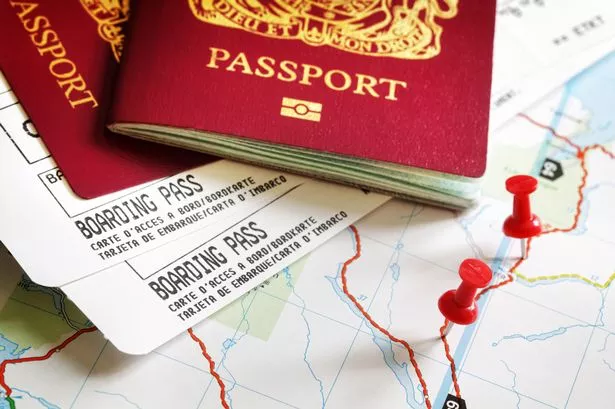
Introduction
Are you considering Turkey as your next business destination? With its unique blend of East and West, Turkey offers a plethora of opportunities for business visitors. This guide will provide you with everything you need to know about doing business in Turkey, from understanding the market to navigating cultural nuances. BUSINESS Visitors to Turkey
1. Why Turkey?
Turkey’s strategic location at the crossroads of Europe and Asia makes it a prime spot for international business. Its dynamic economy and growing markets are attractive to many entrepreneurs and investors looking for new opportunities.
2. Business Environment in Turkey
2.1 Economic Overview
Turkey boasts a diverse and robust economy. It is one of the world’s leading producers of agricultural products, textiles, vehicles, and electronics. The country has seen significant economic growth over the past decade, making it an attractive destination for business.
2.2 Key Industries
Key industries in Turkey include automotive, electronics, textiles, and tourism. The country is also becoming a hub for technology and innovation, with many startups and tech companies emerging in recent years.
2.3 Government Policies
The Turkish government has implemented various policies to attract foreign investment. Incentives such as tax breaks, subsidies, and simplified regulations are designed to make the business environment more favorable. TURKEY VISA VALIDITY
3. Starting a Business in Turkey
3.1 Legal Requirements
To start a business in Turkey, you need to comply with local laws and regulations. This includes obtaining the necessary permits and licenses, as well as registering your business with the appropriate government authorities.
3.2 Business Structures
There are several types of business structures you can choose from, including sole proprietorships, partnerships, and corporations. Each structure has its own legal and tax implications, so it’s important to choose the one that best suits your needs.
3.3 Registration Process
The registration process in Turkey is relatively straightforward. It involves submitting the required documents, such as your business plan, proof of identity, and proof of address, to the relevant authorities.
4. Finding Business Opportunities in Turkey
4.1 Market Research
Conducting thorough market research is crucial to finding business opportunities in Turkey. This will help you understand the local market dynamics, identify potential customers, and assess the competition.
4.2 Networking
Networking is key to success in Turkey. Building strong relationships with local business partners, suppliers, and customers can open up new opportunities and help you establish a foothold in the market.
4.3 Trade Shows and Exhibitions
Attending trade shows and exhibitions is a great way to showcase your products and services, meet potential clients, and learn about the latest industry trends.
5. Business Etiquette in Turkey
5.1 Meeting and Greeting
First impressions matter in Turkey. A firm handshake, direct eye contact, and a warm smile can go a long way in establishing a positive business relationship.
5.2 Communication Styles
Communication in Turkey can be quite direct, but it’s also important to be respectful and polite. Understanding and adapting to local communication styles can help you navigate business discussions more effectively.
5.3 Business Attire
Business attire in Turkey is generally formal. Wearing a suit and tie is common in most professional settings, although business casual attire may be acceptable in some industries.
6. Understanding the Turkish Market
6.1 Consumer Behavior
Understanding consumer behavior is crucial to your business success in Turkey. Turkish consumers value quality and are often influenced by brand reputation and word-of-mouth recommendations.
6.2 Regional Differences
Turkey’s diverse regions each have their own unique characteristics. For example, business practices in Istanbul may differ from those in Ankara or Izmir. Understanding these regional differences can help you tailor your approach.
6.3 Competition Analysis
Analyzing your competition is essential to identify your unique selling points and develop strategies to differentiate your business in the market.
7. Cultural Considerations
7.1 Religion and Business
Islam plays a significant role in Turkish culture, and understanding its influence can help you navigate business interactions more effectively. It’s important to be mindful of religious practices and holidays.
7.2 Festivals and Holidays
Turkey celebrates several national and religious holidays. Being aware of these can help you plan your business activities and avoid scheduling conflicts.
7.3 Gender Roles
While gender roles in Turkey are evolving, it’s important to be aware of traditional norms and respect cultural expectations in business interactions.
8. Navigating Legal and Regulatory Landscapes
8.1 Intellectual Property Rights
Protecting your intellectual property is crucial when doing business in Turkey. Ensure you understand the local laws and take the necessary steps to safeguard your assets.
8.2 Taxation
Turkey has a complex tax system, and it’s important to understand your obligations. Consulting with a local tax advisor can help you navigate the various taxes and ensure compliance.
8.3 Employment Laws
Understanding employment laws is essential if you plan to hire local staff. This includes knowing the regulations around working hours, minimum wage, and employee rights.





